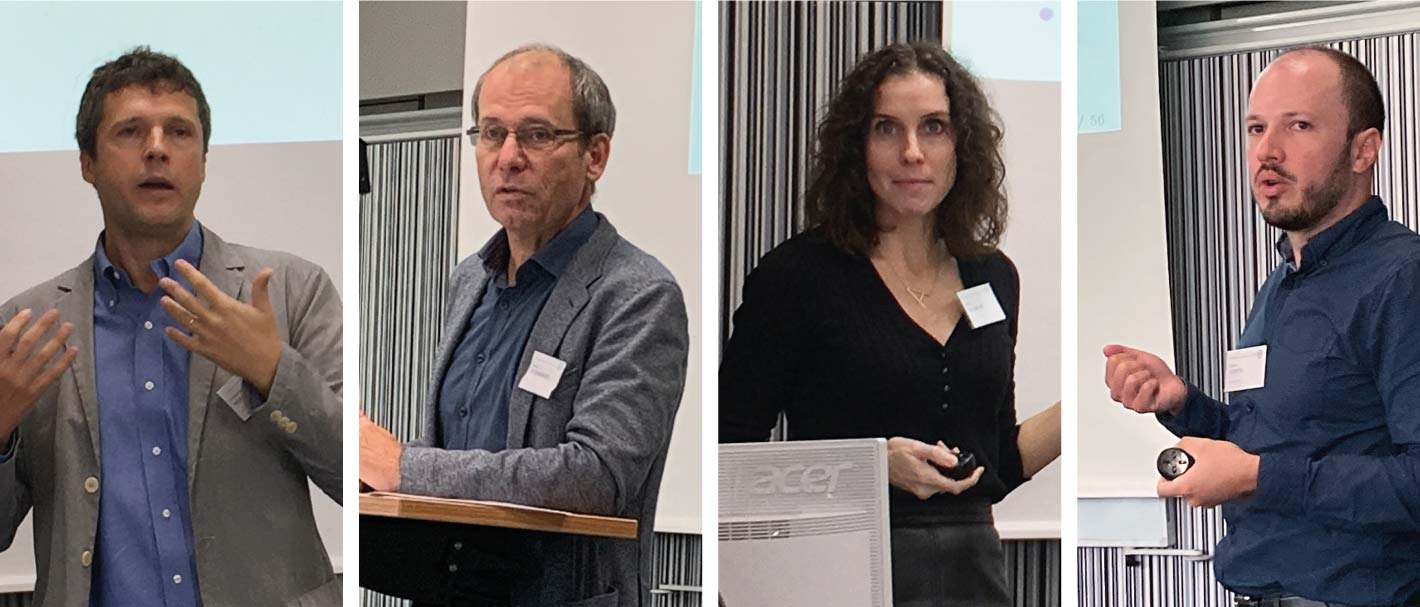28. October 2022 | Digital and ecological transformation
TASKS VI conference on the digital and ecological transformation of the labour market

The conference jointly organised by the Federal Institute for Vocational Education and Training (BIBB), the Institute for Employment Research (IAB) and Leibniz Centre for European Economic Research (ZEW Mannheim) focused on current transformations of the labour market: How does technological change transform the labour market? Which tasks, skills, and requirements are losing importance, especially in the face of the ecological transformation, and which are becoming more important? How does this affect firms and employees? And which developments will be exacerbated or changed by the Covid-19 pandemic?
50 researchers from Germany and abroad discussed these and other questions at the sixth international TASKS conference on 15 and 16 September 2022 at the IAB in Nuremberg. They presented their latest findings and ideas, which provoked lively debates and discussions. The topics ranged from changes in the job content and the impact on workers through the use of robots to international perspectives on technological and environmental change.
In his welcoming speech, IAB Director Professor Bernd Fitzenberger (second person from left) emphasised the relevance of academic research on the future of work, from which the recommendations for policy-makers and practitioners emerge. He stressed the high quality of the submissions, mostly based on the “task approach”, which serves as a basic theoretical concept for analysing how technological developments affect labour markets, firms, and workers. In his view, the fact that the TASKS conference is now taking place the sixth time underscores the importance of the task approach as a concept for analysing the future of work. The BIBB, the IAB and ZEW will continue to play a major role in the design and further development of the task-based approach.
Vona: Retraining and targeted on-the-job training are essential to improve the effectiveness of green stimulus packages.
Three keynote lectures set important impulses for scientific exchange. Professor Francesco Vona of the University of Milan (first person from left) explained how to identify and measure green employment. Identifying the tasks and skills important for green jobs is crucial to assess reallocation costs and design retraining programs. Engineering and technical skills, for which one does not necessarily need a university education, prove to be extremely important in green occupations, as Professor Vona showed. He emphasised that targeting workforce training towards green jobs requires stimulus packages that are designed to have an environmental impact. Still to date, these occupations often require more skills than occupations in fossil industries, without receiving full compensation in terms of higher wages. This could possibly hamper transitions from brown to green jobs if not adequately addressed.
Salomons: More than 60 percent of 2018 employment is in job titles that did not yet exist in 1940.
In the second keynote lecture, Professor Anna Salomons of Utrecht University (third person from left) sheds light on the origins and the content of new work. Based on representative data from the U.S. Census, she showed that more than 60 percent of employment in 2018 was in job titles that did not yet exist in 1940. She also highlighted that the locus of new work creation has polarized from middle-paid production and clerical occupations over 1940 to 1980, to high-paid professional and, secondarily, low-paid services since 1980. New work was shown to emerge in response to augmentation innovations that complement the outputs of occupations and to demand shocks that raise occupational demand; conversely, automation innovations that automate worker tasks or demand shocks that reduce occupational demand slow new work emergence. Salomons showed that employment and wage bills rose in occupations that were exposed to augmentation technologies, but fell in occupations exposed to automation technologies. As labour displacement due to automation appears to have accelerated since 1980, one core issue for future research is to better understand why the relative importance of augmentation and automation technologies has shifted over time.
Cortes: The impact of technological change on workers depends not only on workers’ skills, but to a large extent on which firm they work for.
Matias Cortes (first person from right), Professor at York University, presented his research on technological change, corporate heterogeneity and wage inequality. He shed light on how technological change relates to rising wage inequality between firms – one of the major labour market trends in the past two decades. Cortes presented a framework with heterogeneous firms and labour market frictions where skill-biased technological change not only contributes to rising inequality between skill groups, but also to rising inequality between firms even within the same skill group. The model thus predicts an increasing role of the firm in determining worker wages. Using data from the IAB, he finds empirical support for this prediction. This finding is highly relevant for labour market policies because promoting education will not suffice to counteract rising wage inequality. Instead, policies that aim to help lagging firms catch up to the technology frontier are likely to make an important contribution to reducing wage inequality. For labour market policy, it is therefore important to consider wage inequality in the context of heterogeneous firms and labour market frictions.
The first TASKS conference after the outbreak of the Covid-19 pandemic proved to serve as an inspiring platform for scientific exchange in a vibrant field of research on the future of work. It thus aligns with the series of prior TASKS conferences and underscores the importance of international and cross-disciplinary cooperation.
DOI: 10.48720/IAB.FOO.20221028.01
Arntz, Melanie; Ehmann, Kathrin ; Lehmer, Florian (2022): TASKS VI conference on the digital and ecological transformation of the labour market, In: IAB-Forum 28th of October 2022, https://www.iab-forum.de/en/tasks-vi-conference-on-the-digital-and-ecological-transformation-of-the-labour-market/, Retrieved: 20th of April 2024
Authors:
- Melanie Arntz
- Kathrin Ehmann
- Florian Lehmer

 Professor Dr Melanie Arntz is the Deputy Head of the ZEW’s “Labour Markets and Social Insurance" research unit and a Leibniz Professor of Labour Economics at Heidelberg University.
Professor Dr Melanie Arntz is the Deputy Head of the ZEW’s “Labour Markets and Social Insurance" research unit and a Leibniz Professor of Labour Economics at Heidelberg University. Kathrin Ehmann is a researcher at the BIBB`s "Qualification, Occupational Integration and Employment" work area.
Kathrin Ehmann is a researcher at the BIBB`s "Qualification, Occupational Integration and Employment" work area. Dr Florian Lehmer is a senior researcher at the IAB`s "Occupations in the Transformation" research unit.
Dr Florian Lehmer is a senior researcher at the IAB`s "Occupations in the Transformation" research unit.